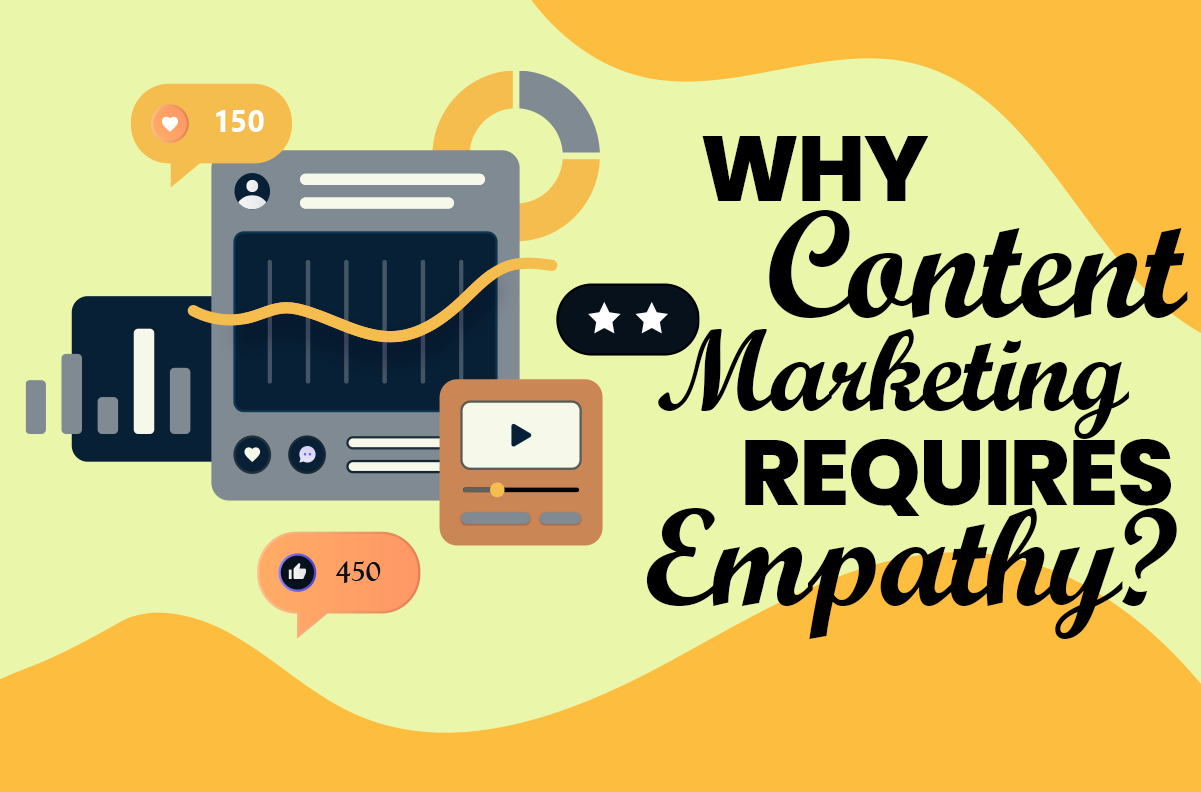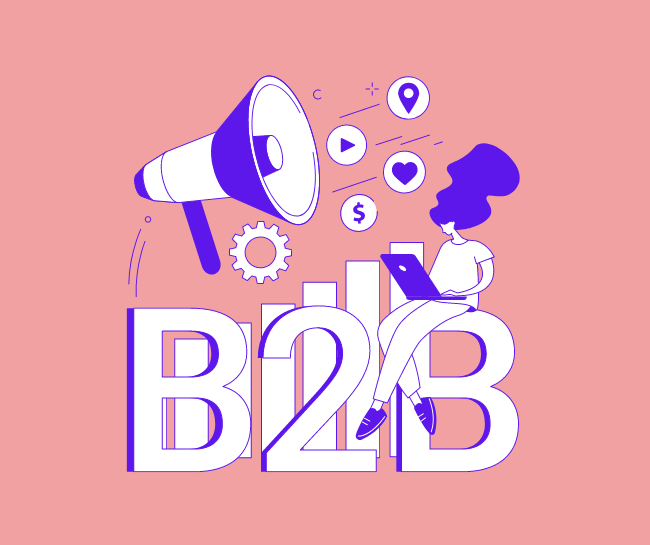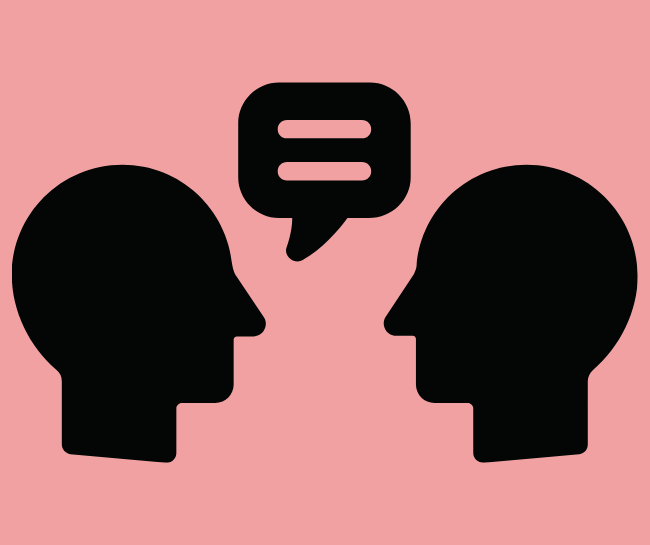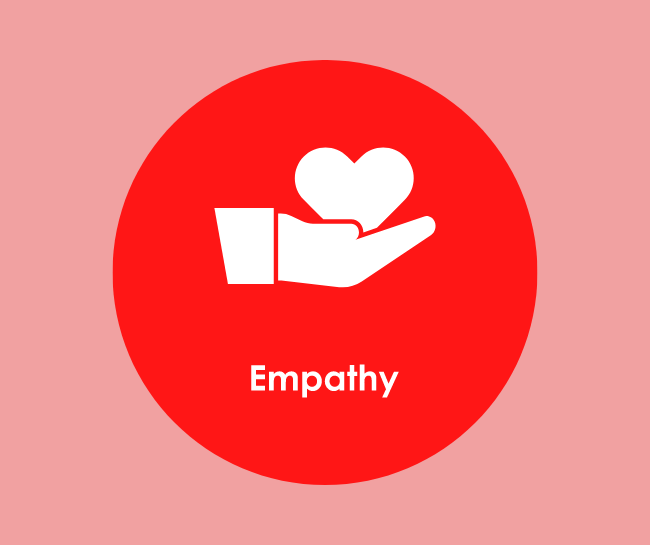Why Content Marketing Requires Empathy?

Subscribers and customers may reject out-of-touch content. On the other hand, content that helps individuals may result in new consumers and brand advocates.
Content marketers conflate quantity with quality, cranking out piece after piece with disappointing results. Engaging people with content rather than selling or talking to them is the key to successful content marketing. You won’t be able to communicate with your audience genuinely if your content isn’t created with their specific requirements or interests in mind.
Fortunately, empathy is one way to ensure that your content is effective, relevant, and valuable. So, why content marketing requires empathy? Is empathy marketing effective? Continue reading to find out why.
What is empathetic content

It is not enough to pretend to be empathetic. It is about connecting with the other person’s point of view, ideas, or emotions about the circumstance and putting oneself in their shoes.
Empathy is a valuable talent to develop since it affects everything from content development to team management. When done well, it may make individuals feel noticed and heard. It may also help your communications hit the right note.

Even in B2B, empathetic content marketing may make a huge difference.
Understanding empathic content marketing is critical for effectively marketing your brand nowadays. Empathy is the ability to share and comprehend another person’s emotions. It refers to walking a mile in somebody else’s footsteps. People have traditionally expected their leaders to demonstrate empathy for them to make choices that benefit the greater good. They now expect the same from both large and small firms.
Additionally, genuine empathy in marketing is required. Companies must generate content that displays their beliefs and communicates to consumers that they care. Customers have become used to highly individualized interactions with companies due to the emergence of social media.
Is empathy marketing effective

You can comprehend your customer’s buying habits and identify methods to serve them better if you can put yourself in their footsteps. Empathy always triumphs.
Smart marketers use empathetic marketing to evoke an emotional action and reaction. They use subtle emotional signals such as color and abstract pictures. The tone of voice and body movement are even more clear clues. Fear, pleasure, sadness, rage, enthusiasm, or surprise may all be expressed via facial expressions.
You may carefully customize these emotional signals to engage clients and urge them to purchase. However, there is more. Understanding consumers and assisting them in making life-changing decisions are at the heart of empathetic marketing.
Why is empathy important in marketing
We’re all aware that showing empathy is the right thing to do. One of the essential skills in our business toolbox is our capacity to perceive the world through the eyes of others. So, let’s go through the benefits of why content marketing requires empathy:
- Marketing empathy creates trust in your brand
Your contact with the consumer does not stop when you complete a transaction. Because this might be just the beginning, you must give exceptional support, client service, and, in certain situations, more related offerings.
The only way to do so is to proceed with empathy. It is critical to take the time to understand what is happening with the buyer. Many customers, particularly those purchasing large-ticket things, want to know they made the right decision. Moreover, there could be implementation issues, and you may need to give information to assist the company in explaining and implementing the new product to its staff.

As you meet the customer where they are, you will earn their trust in your brand. You can create trust with all decision-makers at once when there are several decision-makers. When you do, future purchasing procedures will be much faster since they will already trust what you have to say.
Without empathy, the consumer is seen as a transaction, as “just another number.” Consequently, customers are unlikely to return to your firm or promote it to others.
- Marketing should be led by empathy
Marketing is all about the client, and you need empathy to offer your leads what they need to become customers. It all comes down to knowing your consumers, getting insights from even basic discussions, and tailoring the sales process to their requirements.
- Your audience will pay attention to you
People aren’t interested in how much you know until they see how much you care. Your audience isn’t concerned with your honors or accolades; they’re concerned with their difficulties.
Your audience will anxiously await the answer when you demonstrate that you understand the difficulties. This is where you may showcase your service or product, followed by credentials that demonstrate why the audience should believe you.
This relationship requires a thorough understanding of your ideal consumer, which may include reviewing business metrics specific to your industry or conducting customer research surveys.
If you lack empathy, you will never connect with your audience’s biggest need. Thus, people will have no incentive to listen to you.
- Browsers will become your buyers

Everyone likes alternatives, and many people enjoy researching various business ideas from time to time. But how can you transform a passing curiosity about a product or service into a burning desire to purchase it?
Empathy is the solution. This is a significant reason why content marketing requires empathy. When you can put yourself in the buyer’s shoes, you know what they need at the end of the purchasing process. You’ve previously communicated with them at each stage, offering useful information and perspective. This makes even the most thrifty consumers ready to accept your final offer.
Remember that purchasing may be hard, so consider what the ultimate decision-maker needs to pull the trigger. For instance, is there a perplexed stakeholder? Do they need a cost-benefit analysis?
You may convert someone intrigued into someone ready to purchase by offering the right content at the right moment.
- Empathy can lead to brand advocacy
Customers notice when they are treated with remarkable attention. Someone who has been appropriately treated wants to share it with everyone, mainly because it is uncommon in today’s business environment.
You will create a fantastic client experience if you have applied empathy at every stage of your marketing approach. That experience will convert your clients into repeat purchasers and, maybe, brand ambassadors who will refer new customers to your organization.
As long as you treat new clients in the same manner, you will get more champions, and your firm will benefit from the finest marketing available—free word-of-mouth!
- You may speak to individuals throughout the buying journey

B2B marketing has a longer purchasing cycle than B2C marketing and often involves numerous decision-makers. This complicates the whole procedure.
B2B buyers, on the other hand, are still humans. Put yourself in their shoes and consider, “What do I need now if I were them?” This may prompt you to develop a vital piece of content that leads prospects to the next purchase step. It might imply that you supply information that the buyer can send to a key stakeholder. Alternatively, it may influence your use of inclusive language so your consumer feels understood and heard.
In addition, marketers often consider the complete purchasing process at once and are eager to move leads through the pipeline. When you can take a step back and consider what they need, you can slow down adequately to stay up with the real customer.
- Expanded collaboration and engagement
So, suppose the top management and employees demonstrate empathy and a desire to behave compassionately towards everyone else. In that case, it stands to reason that firms with cultures that foster empathy would attract highly engaged personnel. That is precisely what the data shows. Employee retention and morale are also improved in compassionate organizations.
This makes a lot of sense when you examine what today’s employees value. Good, high-performing people have several job options. The gig economy and access to technology, among other things, have opened opportunities outside of typical corporate jobs. As a result, it’s time to go beyond standard corporate perks.
How do you express empathy in marketing
There are steps to take when marketing your company to guarantee you’re coming up with sympathetic marketing concepts that will connect with the appropriate people.
- Develop marketing personas

When you’re thinking about content, think of the misery your customers are attempting to escape and the paradise you want to transport them to. While this may seem dramatic, it applies to content marketing, mainly when the aim is lead creation or sales growth.
Of course, to comprehend your customers’ suffering and what would appeal to them, you must first grasp who they are. The first step in really knowing your audience is to create client personas.
When you understand your audience’s pain points, desires, and demands, you will have a far better understanding to feed your content brainstorming later.
The more knowledge you have about your target audience, the better you will be able to recognize chances to create:
- Content that provides a means of escape. Not everyone appreciates every aspect of an individual’s routine. Creating a nice distraction may be a terrific method to develop goodwill.
- Content of value. This will allow people to study more and perform better at work.
To appreciate a person’s position, you must first grasp who they are. Any marketing effort requires you to determine your target demographic. The process most likely began when you started planning your company. You recognized an issue in this niche at the time and sought to solve it with your service or product. It would help if you now connected with your prospective consumers. The first step is determining what makes people tick and why they need your product or service.
- Identify your customer

This may sound obvious, but it is a stark change from how marketers view content and advertising. Business owners used to inquire about ways to enhance sales through advertising. Marketing experts now suggest thinking about what kind of content will deliver more excellent value to your customers and attract them to your brand. That journey starts with a thorough understanding of your prospective consumer base.
This is not to say that you should never invite your audience to sign up for a newsletter or download an ebook. It entails emphasizing appealing content that draws customers in so you can offer those things and move them through the purchasing process.
- Solve problems

Life is difficult, and people seek answers to the many issues they encounter. Successful businesses notice and react to prospective consumers’ problems. The key to being successful and efficient in our marketing begins with the realization that we are real people attempting to advertise to actual humans, and the best way to do so is to be helpful.
Nevertheless, in videos and blogs, you must highlight your target audience’s issues and provide answers to them. Explaining how they are feeling or what they are going through will help your message. Finally, marketing initiatives must connect with individuals. They must be able to see for themselves that you are genuine and understand their reality.
- Be human

Inform yourself that you, too, are a real person with issues. As a result, you can connect with your customers and give content that is relevant to their lives. Many individuals have stated that empathy in marketing is a fad.
However, empathy is a natural aspect of human nature. It is how individuals engage with one another. Businesses aim to have their employees reach out to prospective consumers and deliver real experiences and information that demonstrate they understand their lives.
Empathy will never go out of style in marketing, leadership, or relationships. It’s necessary to coexist with others. Moreover, empathy enables us to recognize issues and seek answers jointly. People share similar emotions and influence one another. If you can connect with someone on a personal level and show that you care about them, you may be able to win their heart and hence their business.
Furthermore, knowing a consumer’s goals, requirements, annoyances, and complaints can assist in differentiating your marketing efforts from competitors, which is why content marketing requires empathy. Making a connection between a brand and a customer via empathy is the formula for marketing success.
Need help getting started? Effective Marketing Copy can assist you in creating a strategy that will work for you and drive results.

